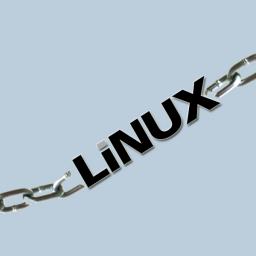There's a good editorial over at ZDNet by
Violet Blue, who writes in the "Zero Day" opinion column:
Wake up: The celebrity nudes hack is everyone's problem. The celebrity nudes 'hacking' scandal is a wake up call about security and human nature.The amount of private data theft going on right now is insane. Until the online revolution, our private spaces were our bedrooms and bathrooms, our homes, sex clubs, our phone calls and our inner fantasy worlds. Now, our private spaces for adult playtime include texts, emails and direct messages to trusted friends or family members, and especially photos. But that's only true if we really trust the person we share them with.
The problem we face now is that not everyone understands or agrees what constitutes a private space online. Online, private spaces include our email inboxes, chat rooms, IRC, social media profiles and their not-public messaging systems (Twitter DMs, Facebook chat), dating websites, message boards. Private space now includes all the places that our personal information resides.
I have an alternate theory, though I do agree with Violet Blue: maybe
Web 2.0 and the "culture of sharing" is the problem? Web 1.0 wasn't so bad, if you ask me.

Munich city council's decision to move from Windows to Linux may be under scrutiny, but it's worth remembering it's not the only major organisation to have chosen open source for its desktops. Linux-based desktop operating systems face barriers to widespread adoption and skepticism about their future prospects due to their limited use today. Yet major users do exist, including companies such as Google and a small but growing number of government bodies.
TechRepublic covers five of the major players that have invested seriously in Linux desktops.
- Google
- NASA
- French Gendarmerie
- US Dept of Defense
- CERN
- yo mamma
 Have you always wanted to share the silly fun of Sailor Moon with your geeklings? Now's your chance! 23 episodes of the original, newly re-dubbed anime are now available online through Viz Media and Hulu.
Have you always wanted to share the silly fun of Sailor Moon with your geeklings? Now's your chance! 23 episodes of the original, newly re-dubbed anime are now available online through Viz Media and Hulu.If you suffered through the Sailor Moon DiC dub in the 90s, you'll find things are different now. In Viz's new dub, character names now match the manga. Sorry, Serena! The voice acting seems to be higher quality, with an admirable effort at matching the animated mouth movements without rushing the dialogue too much to fit the words in. Usagi is appropriately cute and whiny without being grating; my five-year-old commented more than once, "Sailor Moon is hilarious!"
The opening and ending songs, as well as the background and transformation music, remain unchanged and undubbed, which made me happy as an anime watcher who prefers subs over dubs. (I'm a sub snob.)
1 This article is a bit of an experiment. Never covered manga and related on Pipedot before. If you're interested in this topic, speak up; if you're not I probably won't submit similar articles since they're not really my cup of tea.
The Tiobe Index this month shows both C++ and Java languages are less popular than they've ever been, though they're still popular.
"Java and C++ are at an all-time low in the Tiobe index since its start in the year 2001. This doesn't necessarily mean that Java and C++ are on their way out. There is still a huge demand for these programming languages," Tiobe says. Based on a formula that analyzes searches on languages on a number of sites, Java's rating in the September index was 14.14 percent; C++ had a rating of 4.67 percent. Overall, Java ranked second in popularity, while C++ came in fourth.
That doesn't mean they're not still popular languages, and it doesn't mean they're not in demand. But the statistics do show their influence waning as newer and more focused programming languages gain in popularity to address domain-specific programming challenges, like Swift for Apple products, or Ruby [Ed note: for what?]. As usual, C#, PHP, and Python remain in high interest by the programming community.
The Tiobe index itself is here.

Well, can't blame the guy for asking. Over at ITWorld, Paul Venezia wonders, "
Is it time to split Linux distros in two?"
You can take a Linux installation of nearly any distribution and turn it into a server, then back into a workstation by installing and uninstalling various packages. The OS core remains the same, and the stability and performance will be roughly the same, assuming you tune they system along the way. Those two workloads are very different, however, and as computing power continues to increase, the workloads are diverging even more.
Maybe it's time Linux is split in two. I suggested this possibility last week when discussing systemd (or that FreeBSD could see higher server adoption), but it's more than systemd coming into play here. It's from the bootloader all the way up. The more we see Linux distributions trying to offer chimera-like operating systems that can be a server or a desktop at a whim, the more we tend to see the dilution of both. You can run stock Debian Jessie on your laptop or on a 64-way server. Does it not make sense to concentrate all efforts on one or the other?
There's quite a bit more to his argument than these two paragraphs so read on before pointing out that Linux distros
are already mostly divided into server and desktop focuses.



